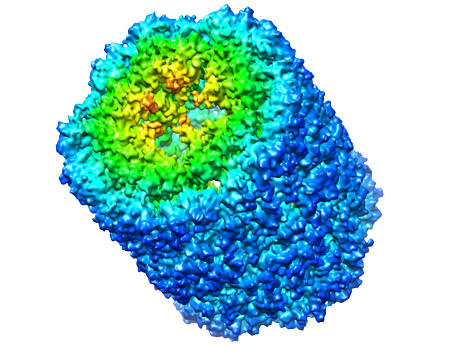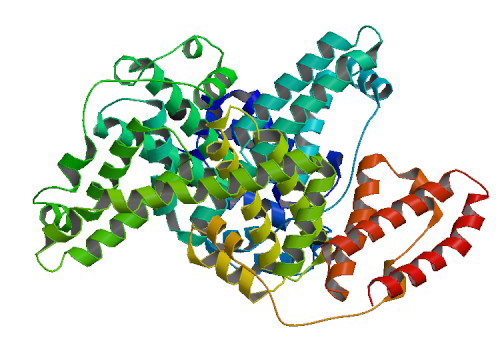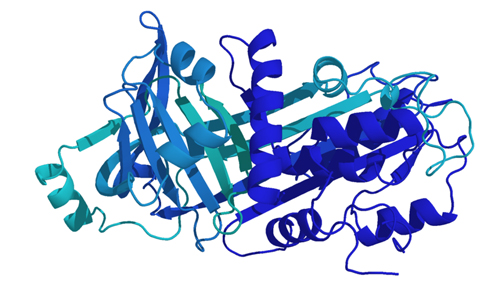Immunogens and Carrier Proteins
What is an immunogen? An immunogen is a specific type of antigen that is able to elicit an immune response. Antibody development is dependent on a humoral immune response mediated by immune cells recognizing a molecule as being foreign. Injecting an immunogen in the presence of an adjuvant pushes the immune system of the host to elicit a specific immune response, generating antibodies against the target. Typically, antigens that are under 20 kDa (~200 amino acids) will not be immunogenic. They will need to be conjugated to a carrier protein. In addition to overall size, another factor that affects immunogenicity is the concentration of the antigen that is injected. The lower the immunogenicity of the antigen, the more concentrated the inoculation volume needs to be.
Why Antigens Are Not Necessarily Immunogens
While all immunogens are antigens, not all antigens are immunogens. This is because some antigens are too small or difficult to bind to be easily detected by the immune system, subsequently preventing macrophages from collecting the antigen and activating B-cells. Without the activation of B-cells to produce specific antibodies that recognize the foreign antigen, there will be no humoral response. If this is the case, the antigen is not an immunogen. In contrast, immunogenic antigens are able to elicit a humoral immune response and have antibodies generated against it, leading to antibody development.
Carrier Proteins Make Small Antigens Immunogenic
By themselves, carrier proteins are easily detected antigens. The immune system will develop antibodies against these proteins very quickly so that they may be targeted by macrophages as foreign particles. By conjugating small target antigens to carrier proteins, most of the antibodies developed by the host will target the carrier, but enough antibodies will also target the conjugated antigen, successfully increasing the targets immunogenicity and allowing for antibody development. The excess antibodies against the carrier protein can be washed away by performing affinity purification, successfully isolating antibodies against the target of interest.
Common Types of Carrier Proteins
Carrier proteins are generally chosen for their large size and distance from the host evolutionarily. The bigger the carrier and the more foreign in structure it is, the more immunogenic it is, increasing the chances of successfully developing antibodies. Each carrier has benefits over the other; the correct choice depends on the nature of the antigen of interest, the host being used to develop antibodies, and the final application for the antibody.
KLH

Keyhole Limpet Hemocyanin (KLH)
Keyhole Limpet Hemocyanin (KLH) is a copper-containing oxygen carrier in the Keyhole Limpet sea snail that is around 390kDa. This massive mollusk protein is effective as an immunogen because of the complexity of its structure and massive size. The distance of this creature from humans on the evolutionary tree causes this immunogen to be immediately recognized as foreign. This is a tried and true carrier protein, and is the most recommended choice for conjugation.
BSA

Bovine serum albumin (BSA)
Bovine serum albumin (BSA) is a carrier protein in the sera of cows that is around 66kDa. It is highly abundant and great an eliciting an immune reaction. BSA can be manipulated to have many positive charges on it, which aids the process of conjugating an antigen to it. However, BSA can be used in other experimental applications, so it should only be used for antibody development if it will not be appearing anywhere else in latter applications.
OVA

Ovalbumin (OVA)
Ovalbumin is the main protein in egg white, and is the smallest suggested carrier protein; around 45kDa. The advantage that OVA provides over other immunogens is that it is soluble in dimethylsulfoxide (DMSO), a polar solvent. This makes it a great candidate for conjugation with antigens that are not soluble in aqueous solutions.
Antibody Production and Custom Antibody Services
Established in 1998, ProSci Incorporated is a leading provider of high performance antibodies and custom antibody services. We have produced more than 10,000 custom monoclonal and polyclonal antibodies for researchers worldwide in academia, biotechnology, diagnostics, and pharmaceutical industries. ProSci Incorporated has developed and manufactured SARS-CoV-2 (COVID-19, 2019-nCoV) antibodies, antigens, and other reagents related to cellular entry: ACE2 receptor, TMPRSSR2 protease, and furin enzyme.We are adding new SARS-CoV-2 reagents for spike, S1, S2, nucleocapsid, membrane, envelope including llama single domain antibodies and recombinant proteins.
Operating our own USDA licensed and NIH/OLAW assured animal facility in San Diego, California, USA and performing immunological services in-house allows us to offer competitive pricing and tailor antibody production for almost any antibody need. Our responsive, results-oriented company culture enables ProSci to produce antibodies specifically for your research requirements, on a budget and timeframe that exceed expectations.
Our dedicated and experienced staff looks forward to assisting you with any aspect of the project from selecting the ideal type of antibody and host species to helping design an immunization protocol or an antigenicity-guaranteed peptide for your custom antibody project. ProSci has the experience and expertise to help you develop the antibodies you desire.

